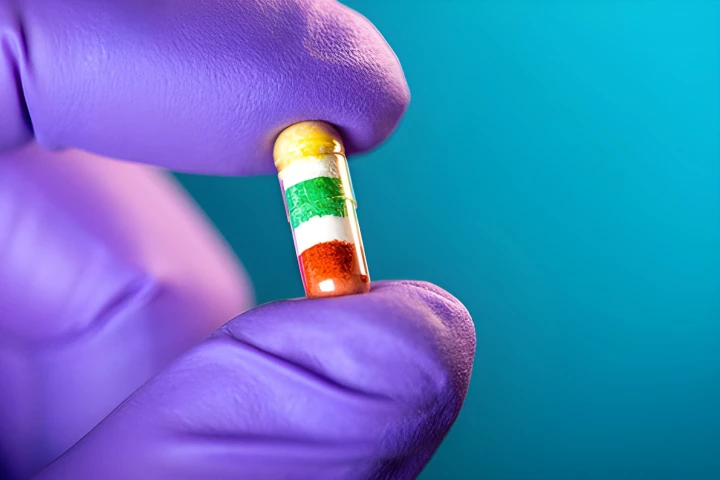Drugs
-
In the ongoing search to find an intervention that does away with opioids, a new game-based system has shown huge promise in tackling chronic neuropathic pain. Using a game and a headset, it "trains" patients to rewire brain signals to relieve pain.
-
A new study has found that smoking marijuana and ingesting THC edibles over the long term can reduce blood vessel function at levels similar to those seen in cigarette smokers, posing a risk to heart health.
-
The first once-daily oral GLP-1 medication could be on shelves by this time next year, making the weight-loss drug easier to take and potentially cheaper. In the race to be the first, Novo Nordisk has scored a huge win, while Pfizer has failed again.
-
For some common medical conditions, timing is everything when it comes to taking medications. Now, a customizable capsule engineered at UC San Diego could simplify complicated dosing schedules thanks to a unique staged release system.
-
A benzodiazepine seeping into waterways is causing young Atlantic salmon to behave strangely, with fish in the wild migrating more rapidly and taking more risks on their journey from river to ocean. It even seems to be messing up their social lives.
-
A study published in the journal Antiquity suggested an ancient South American civilization spiked a beer-like drink with psychoactive drugs as a way of maintaining social cohesion and forging new bonds with surrounding communities.
-
COVID antiviral Paxlovid wasn't perfect. Many patients couldn't take it due to extreme side effects but now the second generation of antivirals are on the way and they promise better efficacy and fewer drug complications.
-
A 2018 study found patients suffering from cancer-related fatigue got improvements in their symptoms after knowingly being given a placebo. The research is part of a body of work suggesting "honest" placebos could play a role in clinical treatments.
-
Spinal muscular atrophy is a debilitating genetic condition that’s usually fatal by a few years of age. But an intriguing case study might demonstrate a simple new treatment, with a child showing no signs at all two and a half years after birth.
-
One of cancer’s deadliest tricks is its ability to spread to other organs. An existing cardiac drug has now been found to reduce the risk of metastasis by dissolving circulating clusters of breast cancer cells in patients.
-
HIV has become a more manageable condition in recent years, but a full cure remains elusive. Now, scientists have found promise in permanently eliminating the virus, thanks to a drug already approved by the FDA to fight cancer.
-
While scientists seem to love giving cocaine to rats, 27 rodents getting high (for the first time) on the lab's supply uncovers intriguing insights into how some individuals appear wired for addiction, where 'averse cues' fail to deter drug use.
Load More











